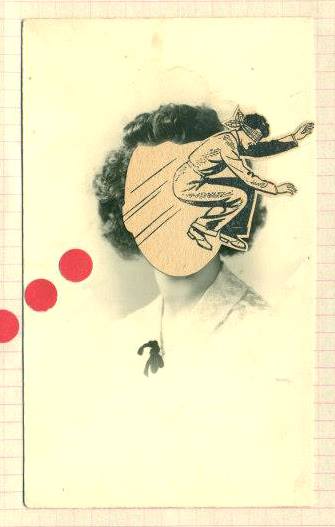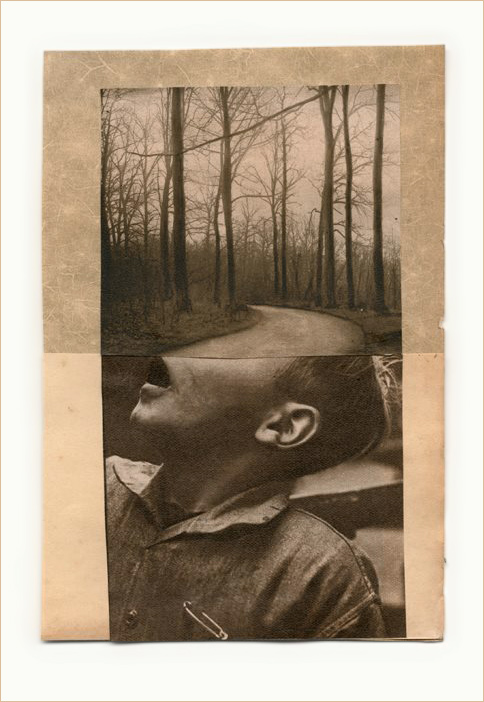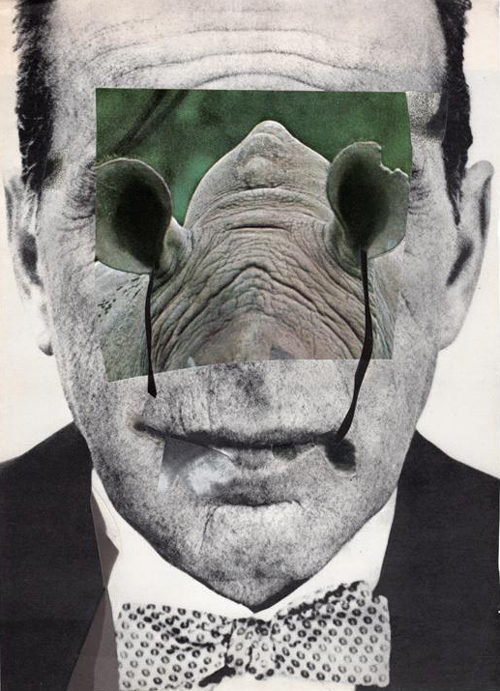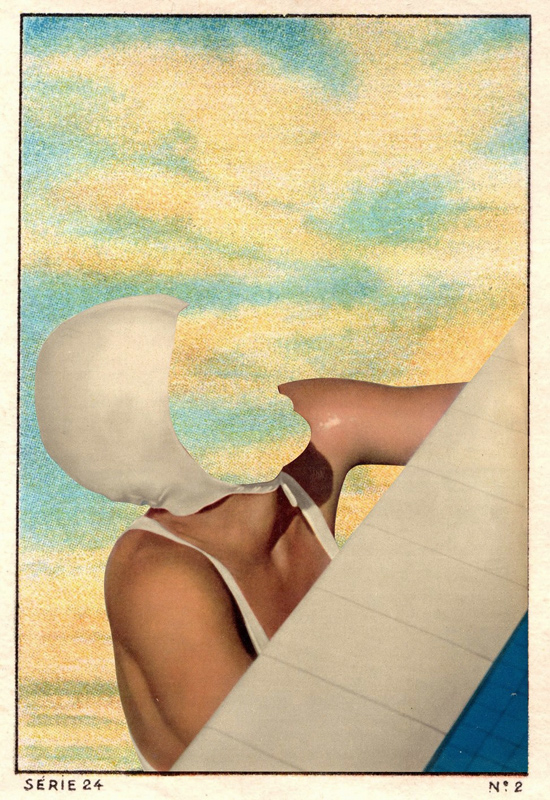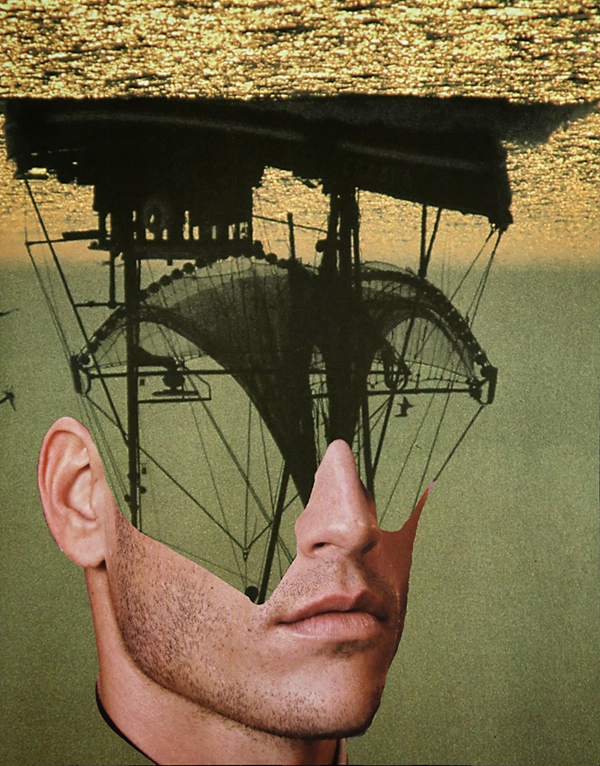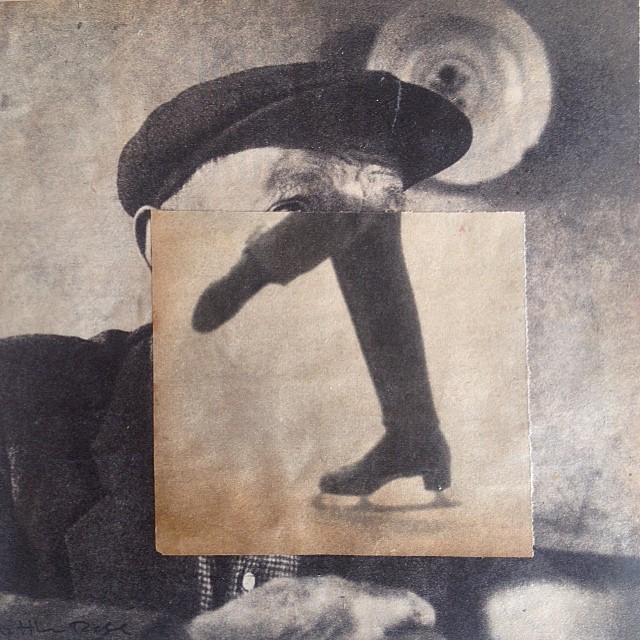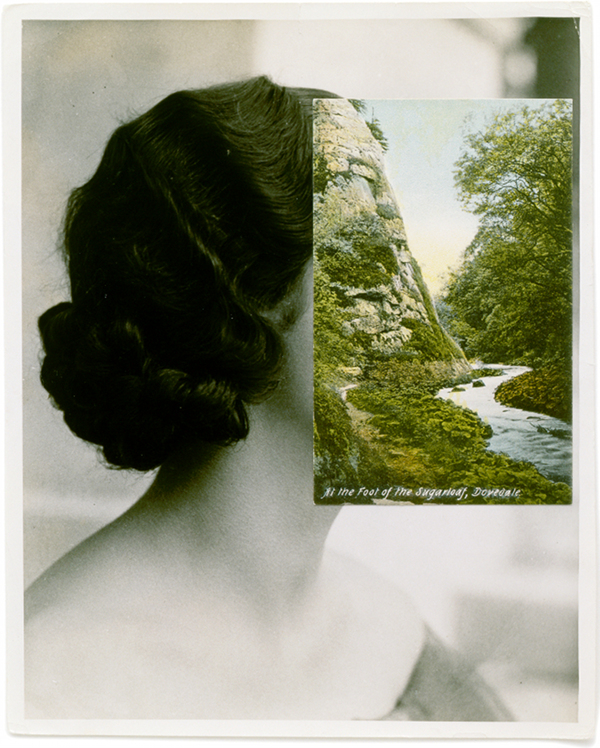“Nobody knows, and it is now too late to discover, who invented that most succinct of all art movement names.”
— Robert Hughes“Style is not to be trusted.”
— Milton Glaser
As most of you know, 2016 marks the centennial of the art movement known as Dada. Although credit for originating collage is customarily granted to the Cubists, nobody shaped the emerging medium as powerfully as early 20th-Century Dadaists and their successors, the Surrealists. Very few traditions or conceptual approaches in contemporary collage have not navigated the tributaries they established, in spite of the fact that each of these artistic “schools of thought” had a relatively short apex. Much continues to be said and written about the catalytic Hugo Ball and the seismic effect after he opened Zurich’s Cabaret Voltaire with Emmy Hennings in February, 1916. Most of the work still being created under the banner of collage has not escaped the hundred-year shadow of inherent sensibilities unleashed on modern art by those who first uttered “Dada!” — spontaneity, chance, irreverence, consternation, and, perhaps foremost, a rejectionist posture. Without a doubt, most collage artists of our time would disagree with Ball’s exhortation to “burn all libraries and allow to remain only that which everyone knows by heart.” Nevertheless, they might indeed relate to his conclusion that “this humiliating age has not succeeded in winning our respect.”
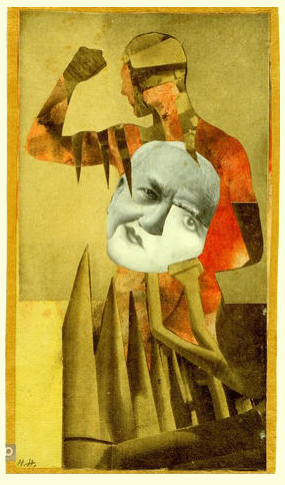 Warsaw-based designer/educator and blogger Annę Kłos describes Dada as a world view, that by its very nature could not be homogeneous, and that the seminal Merz of Kurt Schwitters was manifest within the context of internal incompatibilities. For the most part, however, many artists now tend to lump together the Dadaists, and emulate their visual and intellectual departures as an encompassing genre at best and a mere “style” at worst. — Time out. — This is when I grab myself by the scruff of the neck to keep from going off on an unnecessary tangent. My purpose is to share an ongoing fascination with how Dada continues to influence those of us working in the medium today. Permit me to highlight one particular “subject” that shows no sign of diminishing — the enduring exploration of the Surreal Face. René Magritte’s Le fils de l’homme immediately comes to mind (or his much earlier cover image for André Breton’s Qu’est-ce que le surréalisme?). One must follow their roots to Dada, and to the photomontages of Raoul Hausmann and Hannah Höch, (or her The Strong Guys, or his Tatlin at Home). For me, nothing exemplifies the unsettling, elusive qualities of the Dada phenomenon better than when a contemporary collage virtuoso captures that inexpressible twist of incongruity and aesthetic finesse with a surreal take on the human head. Just when I think there is nothing more to be tapped, I appreciate anew how inexhaustible this “renewable resource” can be.
Warsaw-based designer/educator and blogger Annę Kłos describes Dada as a world view, that by its very nature could not be homogeneous, and that the seminal Merz of Kurt Schwitters was manifest within the context of internal incompatibilities. For the most part, however, many artists now tend to lump together the Dadaists, and emulate their visual and intellectual departures as an encompassing genre at best and a mere “style” at worst. — Time out. — This is when I grab myself by the scruff of the neck to keep from going off on an unnecessary tangent. My purpose is to share an ongoing fascination with how Dada continues to influence those of us working in the medium today. Permit me to highlight one particular “subject” that shows no sign of diminishing — the enduring exploration of the Surreal Face. René Magritte’s Le fils de l’homme immediately comes to mind (or his much earlier cover image for André Breton’s Qu’est-ce que le surréalisme?). One must follow their roots to Dada, and to the photomontages of Raoul Hausmann and Hannah Höch, (or her The Strong Guys, or his Tatlin at Home). For me, nothing exemplifies the unsettling, elusive qualities of the Dada phenomenon better than when a contemporary collage virtuoso captures that inexpressible twist of incongruity and aesthetic finesse with a surreal take on the human head. Just when I think there is nothing more to be tapped, I appreciate anew how inexhaustible this “renewable resource” can be.
Flore Kunst
From her extraordinary “sketchbook” (Page 1).
Katrien De Blauwer
From her Loin Series. Does anyone else do more with less?
Charles Wilkin
“For me clarity and relief is found solely through the process itself.”
Peggy Despres
The prolific Peggy Pop will find the sweet spot.
Pascal Verzijl
Never Saw It Coming (Did Dadaists see digital collage coming?)
Matthew Rose
My Advice (What would I actually give to get his advice?)
John Stezaker
“It sometimes feels like I am cutting though flesh.”
